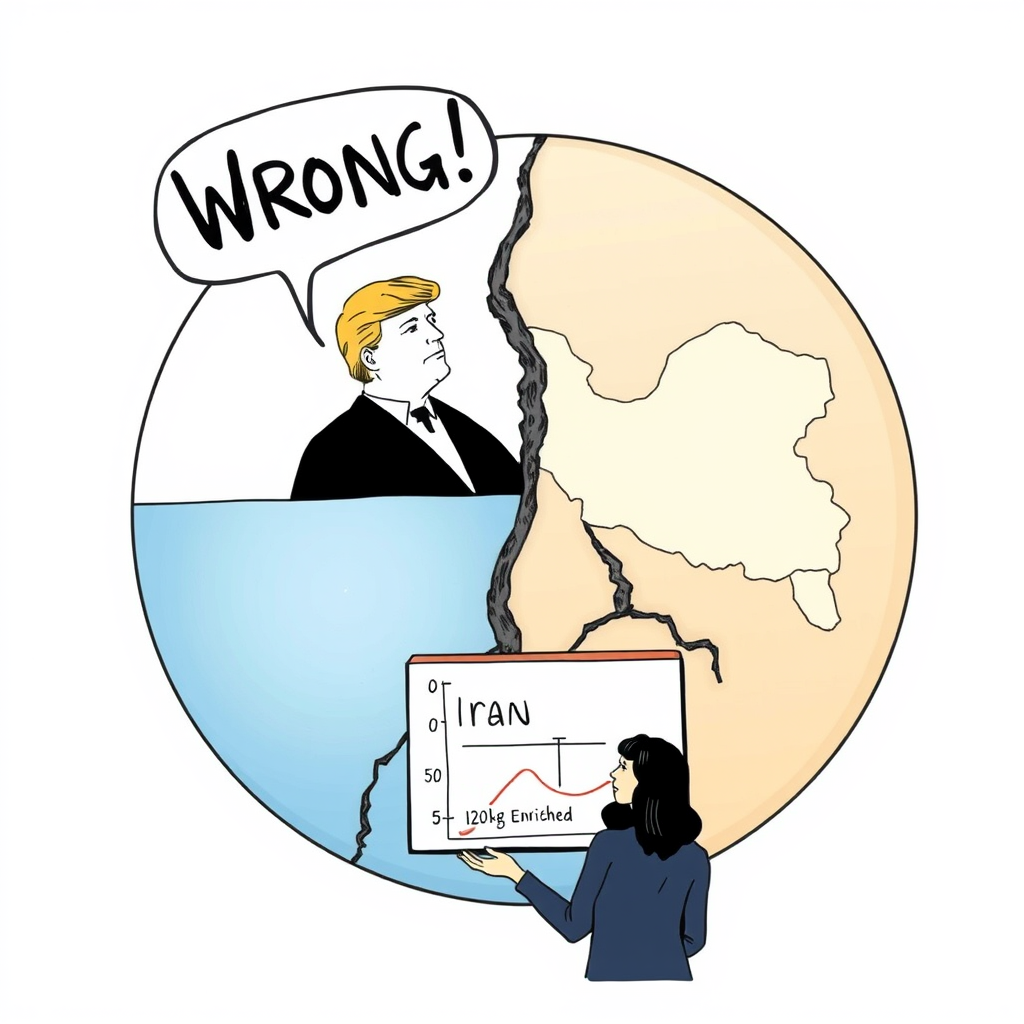Trump Disputes Intelligence Chief on Iran Nuclear Threat

President Trump publicly contradicted a key assessment from within his own administration, disputing Director of National Intelligence Tulsi Gabbard’s testimony regarding Iran’s nuclear capabilities. When questioned about Gabbard’s assertion that Iran is not currently developing a nuclear weapon, Trump was direct, telling reporters on Friday, “She’s wrong.”
Gabbard had testified before Congress in March that the intelligence community (IC) maintains Iran has not resumed its nuclear weapons program, noting Supreme Leader Ali Khamenei suspended such efforts in 2003, and continues to monitor the situation closely. This assessment resurfaced amid escalating tensions between Israel and Iran, following an Israeli operation targeting Iranian military targets and nuclear facilities on June 13.
Trump’s dismissal of Gabbard’s assessment aligns with comments made on Air Force One on June 17, where he stated he didn’t “care” about her earlier testimony, believing Iran was “very close” to acquiring a nuclear weapon. Central to Trump’s stance on Israel’s actions is his firm belief that Iran “cannot have a nuclear weapon.” This position is bolstered by a May 31 report from the International Atomic Energy Agency, which indicated Iran has accumulated approximately 120 kg of uranium enriched to 60%, nearing weapons-grade levels of 90%. This contradicts previous U.S. intelligence reports, including those from Gabbard.
In response to Trump’s rebuke, Gabbard took to social media, claiming her words were taken out of context by “dishonest media.” She maintains alignment with Trump’s overall goal, stating, “America has intelligence that Iran is at the point that it can produce a nuclear weapon within weeks to months, if they decide to finalize the assembly. President Trump has been clear that can’t happen, and I agree.” She shared a longer excerpt of her testimony, highlighting Iran’s unprecedented enriched uranium stockpile.
White House communications director Steven Cheung stated Trump continues to have “full confidence” in his intelligence team, despite the public disagreement. This signals internal divisions within the administration regarding the Israel-Iran conflict.
Trump faces pressure from within the Republican party, with lawmakers like Marjorie Taylor Greene and Rand Paul openly opposing any U.S. military intervention. The situation is further complicated by a recent disagreement with former Fox News host Tucker Carlson, who also opposes involvement in the conflict. While Trump claims Carlson apologized for his “strong” words, the episode underscores the divisive nature of the issue.
The core of the disagreement appears to be a difference in interpreting the same intelligence. Gabbard’s testimony, while acknowledging Iran’s increased uranium enrichment, suggests a lack of active pursuit of weaponization. Trump, however, seems to prioritize the potential for Iran to quickly develop a weapon, given its current stockpile. This difference in emphasis likely informs his more hawkish stance and his support for Israel’s actions. While public disagreement between a President and members of his administration is unusual, it highlights the high stakes and complex considerations surrounding the escalating tensions in the Middle East. It’s a situation demanding careful diplomacy and a clear articulation of U.S. strategic goals.